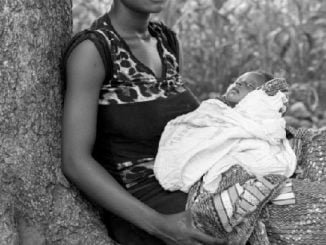
Kabale, Uganda | By Michael Wandati | The Kabale District Health Officer, Dr. Gilbert Arinaitwe Mateeka, has disclosed that the district grapples with over 1300 teenage pregnancies each year.
He shared this concerning statistic during a stakeholder dialogue hosted by the Local Sustainable Communities Organization (LOSCO) at the White Horse Inn in Kabale. The primary focus of this gathering was to address sexual reproductive health issues within the district.
Dr. Gilbert Mateeka’s report shed light on the distressing figures. In 2020, Kabale District documented 1,346 cases of teenage pregnancies, which escalated to 1,479 cases in 2021 and 1,478 cases in 2022. Moreover, he highlighted that there are likely numerous unreported cases since many victims do not seek professional medical assistance.
The District Health Officer explained that teenage pregnancies are typically unwelcome and unprepared for, leading to both physical and psychological repercussions for the affected individuals. These consequences include pregnancy complications and delivery-related issues, sometimes compelling teenagers to consider risky alternatives such as abortion.
Regrettably, a significant portion of these teenage mothers end up discontinuing their education, abruptly truncating their life aspirations and dreams. Dr. Alfred Besigensi, the Kabale District Senior Health Educator, and Florence Tumuheirwe, the Executive Director of Kigezi Women in Development (KWID), attributed this alarming trend to inadequate sex education. They argued that teenagers engage in sexual activity at an early age due to a lack of understanding about the potential consequences and how to protect themselves.
The Deputy Resident Commissioner of Kabale, Ronald Bakak, voiced concerns about the ethical conduct of law enforcement officers in Uganda, particularly the Police, who sometimes engage in negotiations with parents to resolve defilement cases.
Mr. Bakaki expressed his worry that, in such situations, some cases never make it to the courts of law. He pledged to take stringent actions against such Police Officers to safeguard the welfare of girls in Kabale.
Albert Taremwa, the Director of the Local Sustainable Communities Organization (LOSCO), noted that the dialogue, organized in collaboration with the Center for Health, Human Rights, and Development (CEHURD), aimed to raise awareness to reduce maternal mortality and enhance access to sexual reproductive health and rights in the Kabale district.
According to the latest report from the Uganda Bureau of Statistics (UBOS), the national teenage pregnancy rate stands at 25%, signifying that one in every four Ugandan women has given birth before the age of 18.
Read Also: Activists push for contraceptives among school-going teenagers
Dr. Charles Olaro, the Director for Curative Services at the Health Ministry, recently revealed that the government is considering a policy to allow girls as young as 15 years to access contraceptive services, a move aimed at reducing early pregnancies.
Dr. Olaro emphasized that priority would be given to “out-of-school” teenagers and young adults. However, it’s important to note that this policy is subject to approval by the Cabinet and Parliament. Deputy Speaker of Parliament, Thomas Tayebwa, has already expressed reservations about the idea.
During a parliamentary session, Tayebwa discouraged the government from endorsing a policy that is still under ministerial consideration, a sentiment shared by Amuru District Woman MP Lucy Akello, who argued that such a policy might inadvertently condone early sexual activity among teenagers.



